- Home
- Blog
Recent Posts
Blog
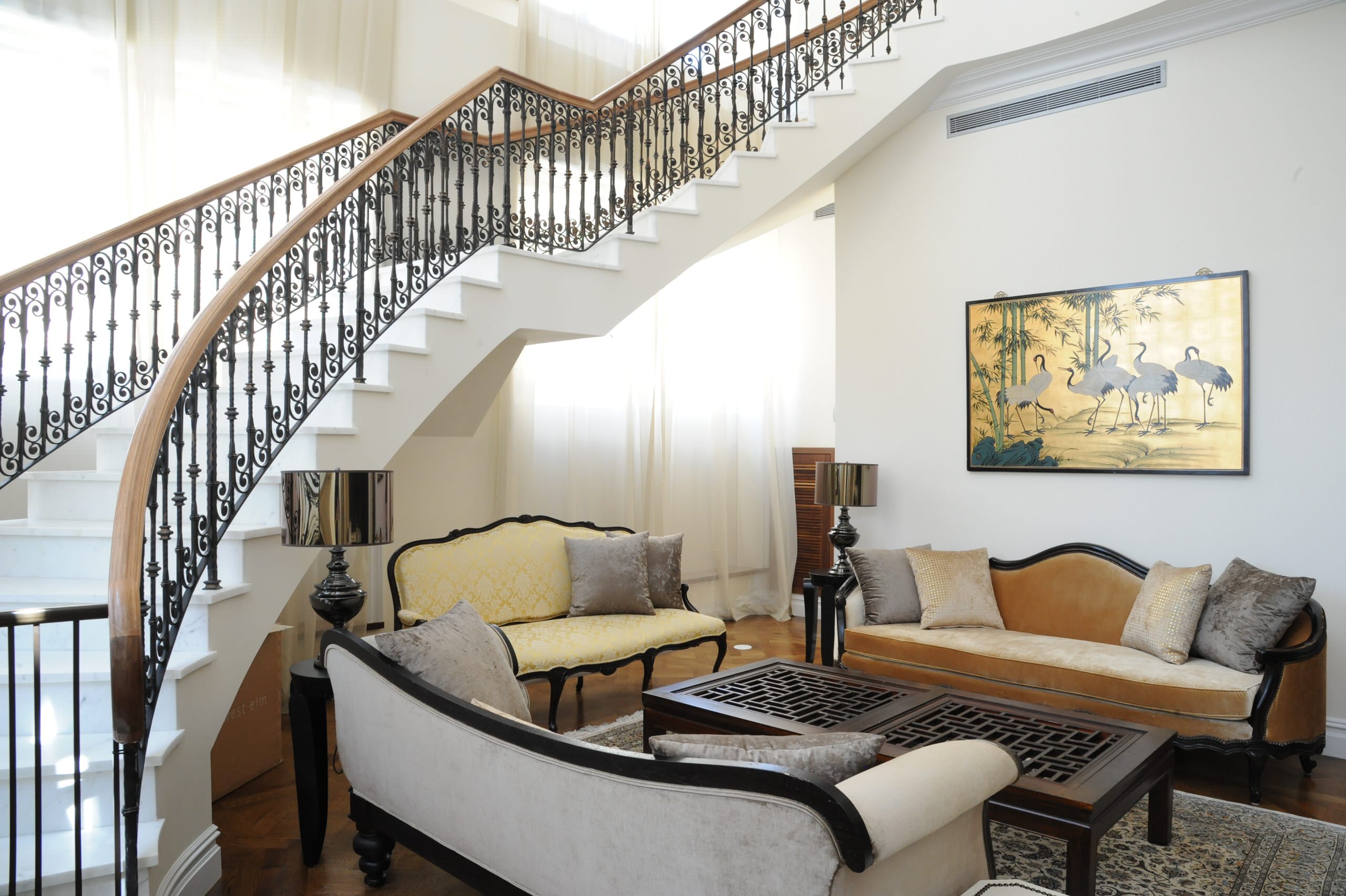
Mismatched Living Room
The living room is the room in the house where we spend the most time. Adding a pop of color and different shapes will help us bring a cozier atmosphere, although too much could overload the space. These 4 living room ideas using sofas and armchairs of different colors, shapes, and materials will surely inspire [...]
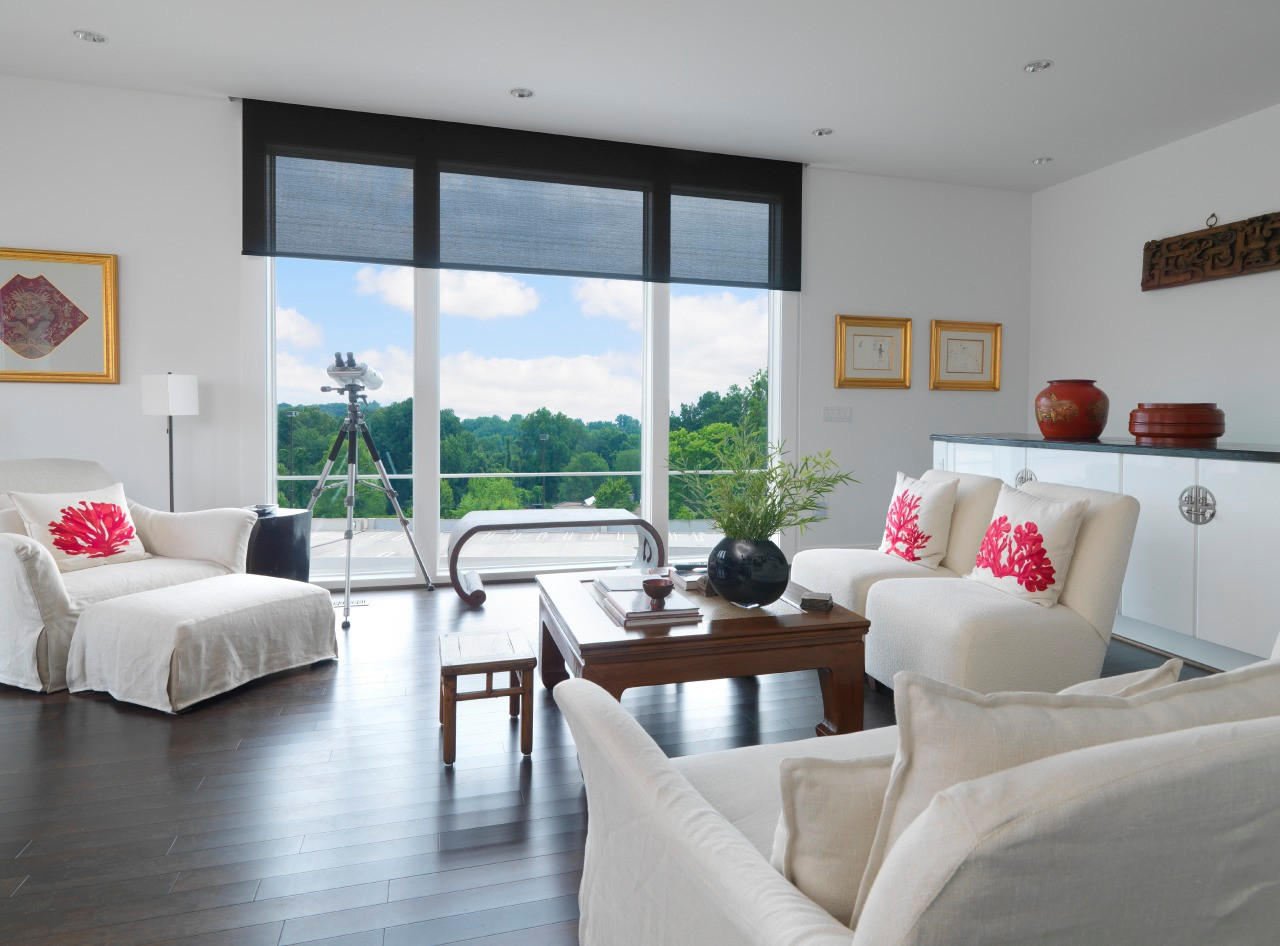
Asian Condo Contemporary
Considering a Condo? It's easy to make a statement! Consider the following: To furnish a condo in the best possible way, start with the mood you want to create. Try for a consistency in style and theme throughout the condo whether single floor or two level. Furniture should not be overwhelming, so use a few primary pieces first [...]
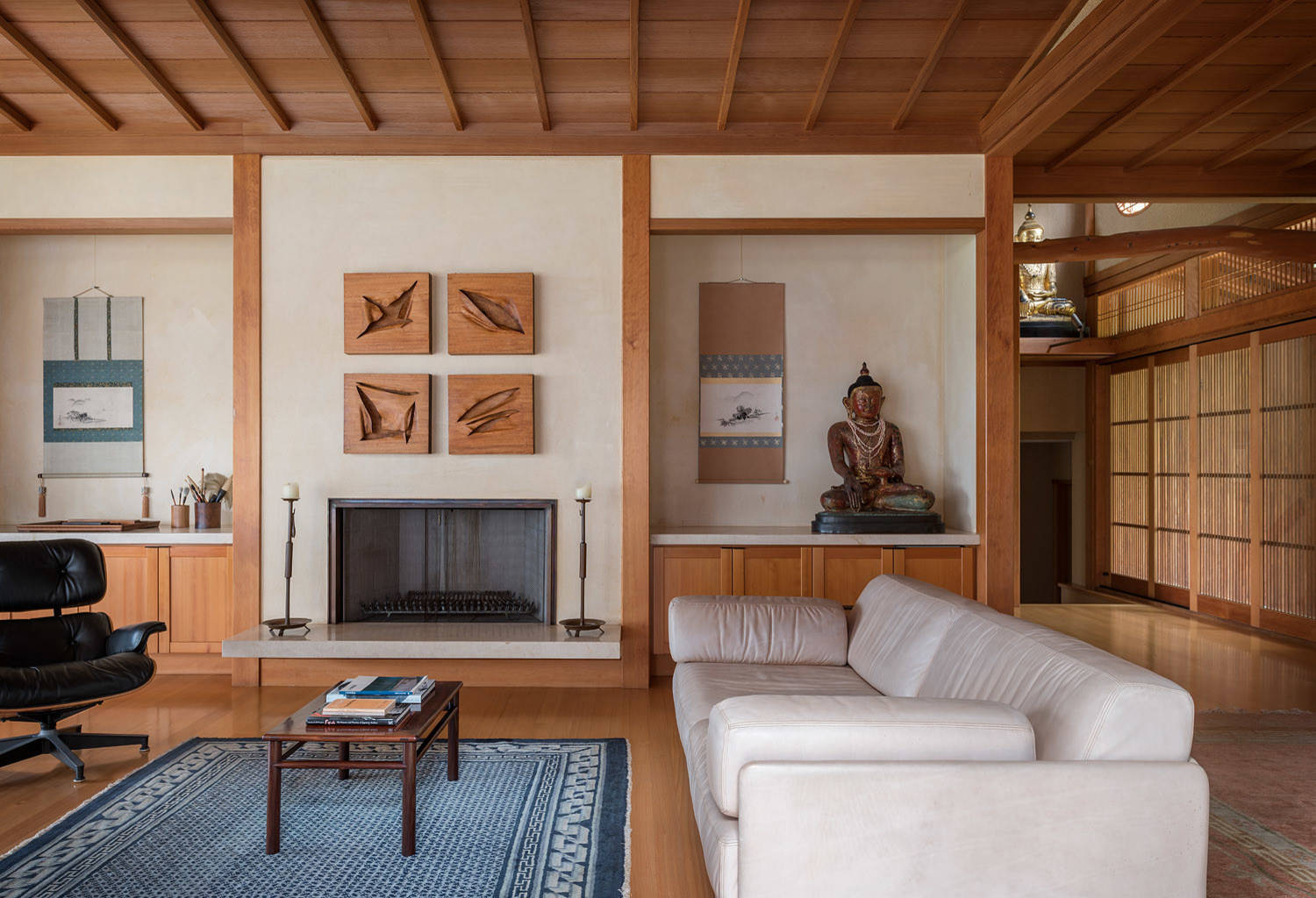
A Hawaiian Paradise
You don’t have to be a practicing Buddhist to experience the peace and the calm a Buddha statue brings to an environment! And within the tradition, a well placed Buddha will always remind you to balance the energy within as you've balanced the space you're in, your home. Spot the wonderful placements in this Hawaiian home paradise [...]

Open Concept Interior Design
"Open concept" expresses the continuity of diverse interior spaces like living rooms, dining rooms, and cooking areas sharing the same continuous space. Familiar names like Frank Lloyd Wright and Mies Van Der Rohe are some of the first modern architects of this concept. Their periodic minimalism and use of materials played with perspective, keeping spaces [...]

A Berkeley Tea House
The Oakland firm of Komorous-Towey Architects was selected to design the 9-by-9-foot Tea House that we see in the photos below. "The project was a labor of love for everyone concerned," said Bonnie the owner of this Asian influence house in Berkeley. The teahouse is constructed of Canadian red cedar framing and white birch interior panels. [...]
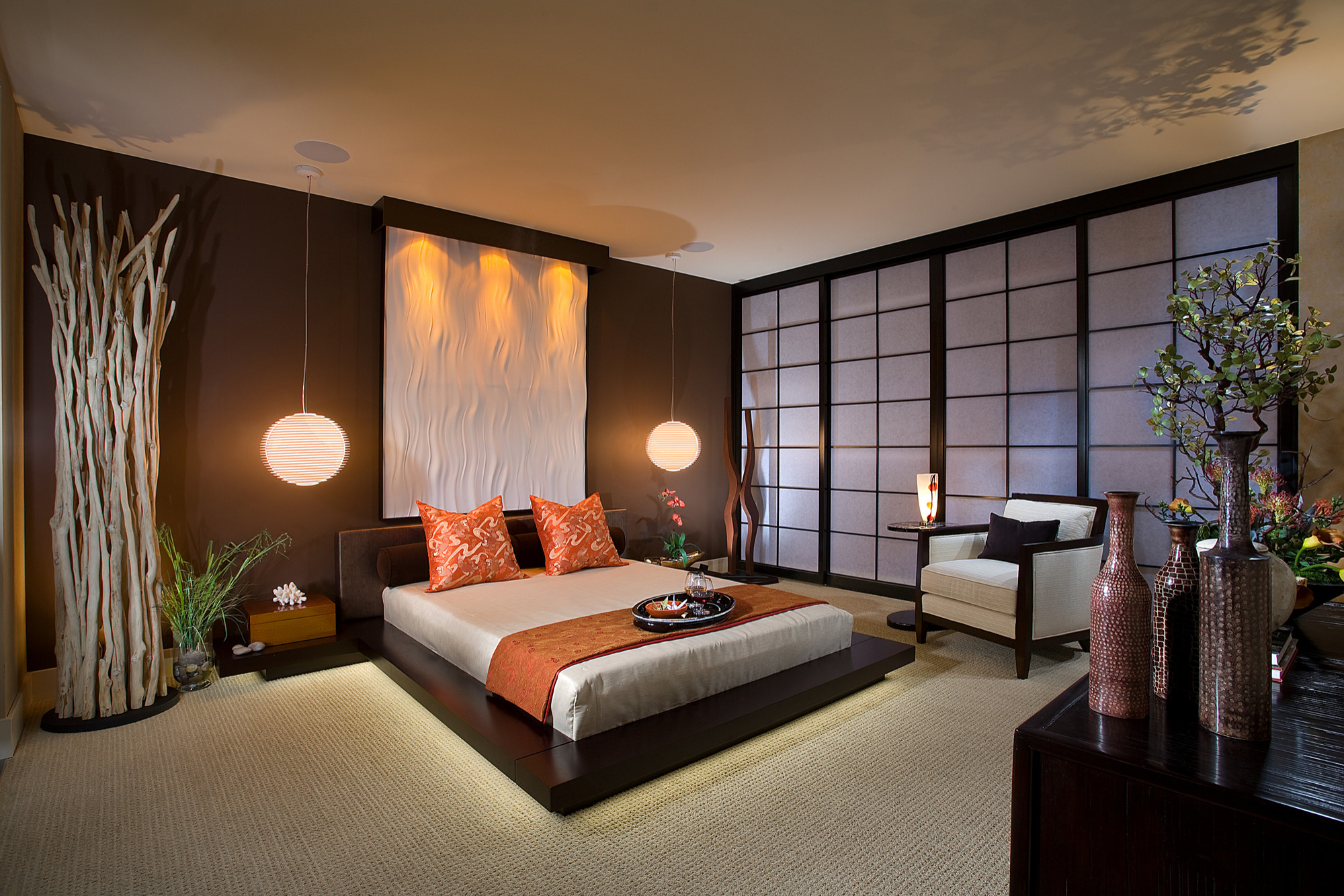
Bedroom Lighting
What are the best bedroom lighting solutions? No area in the home provides you more comfort than the bedroom. It's your own sanctuary where you relax and recharge from the day, so finding the lighting that suits this space is important. Below we find some options to create your desired mood. If you like to read [...]

A House We Love
Get inspired by this contemporary remodel with an Asian touch in San Diego! For this townhouse, the designer, Jim Walters, was awarded the American Society of Interior Designers (ASID) First Place Residential. This beautiful hallway is a functional space that combines storage, a room for an art and family photo gallery. The block printed wallpaper serves [...]
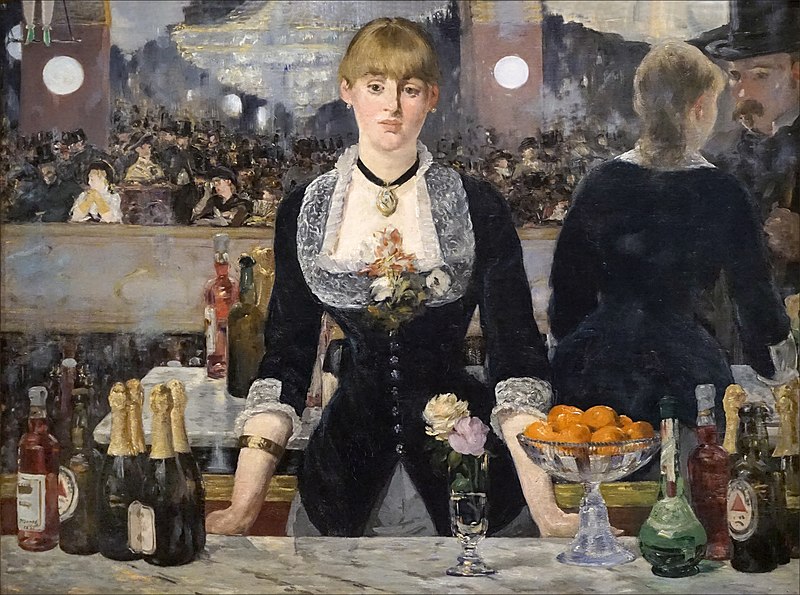
Masterpieces of Art
Interior designers often look for inspiration to the perfect palettes of the masters of color, the painters. Every artist's approach to color is unique and allows us to create endless experimental and unique color combinations. Here are four mood boards inspired from four famous paintings to help you create an eye grabbing color in your [...]
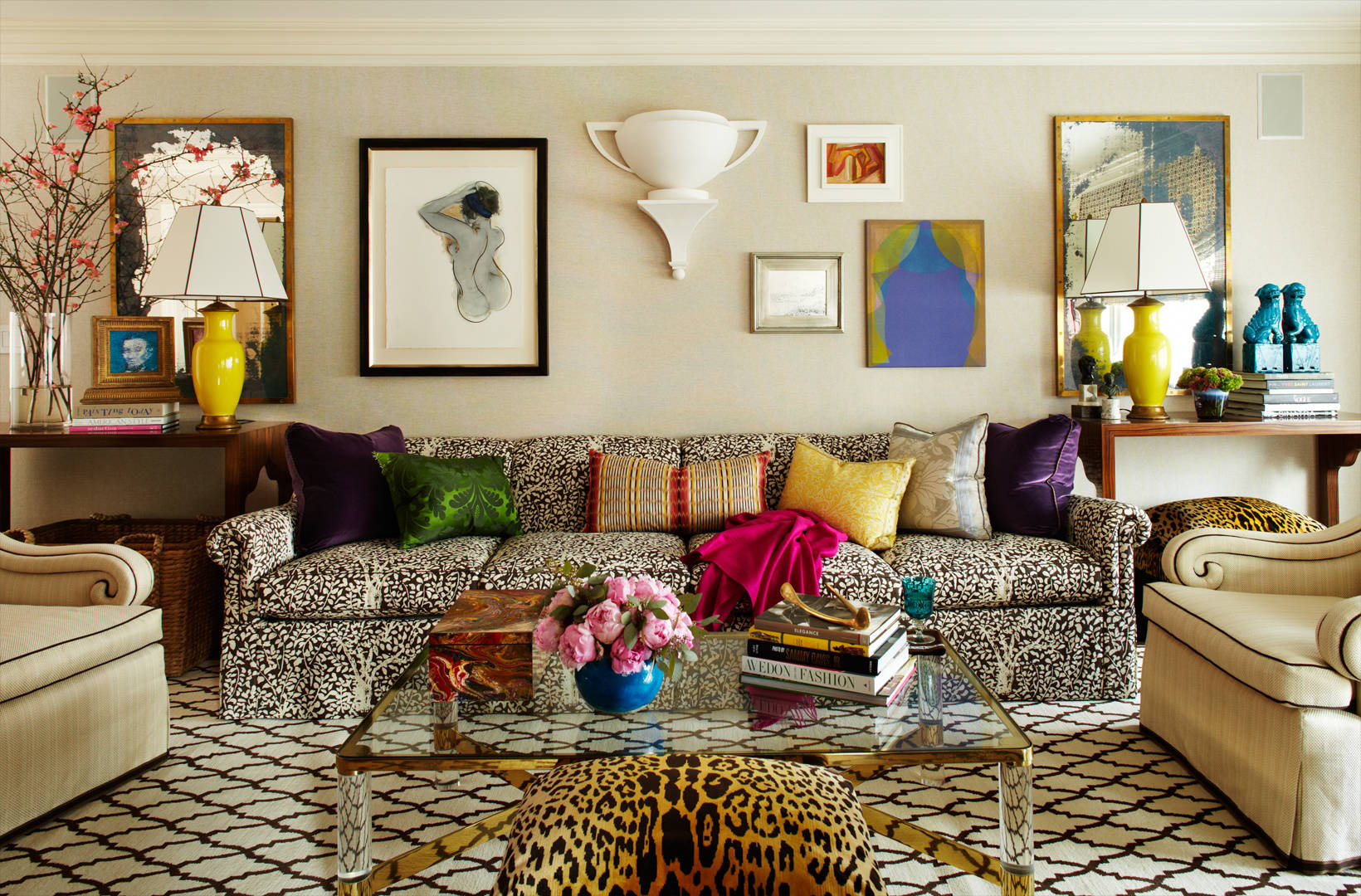
The Juxtaposition Concept
The Juxtaposition term is usually used in visual arts and music but lately is also becoming popular for interior design. Juxtaposition consists in putting together two objects, themes, or materials, and combining them to create a striking contrast. In interior design this means putting together two different styles or two different periods within the same [...]
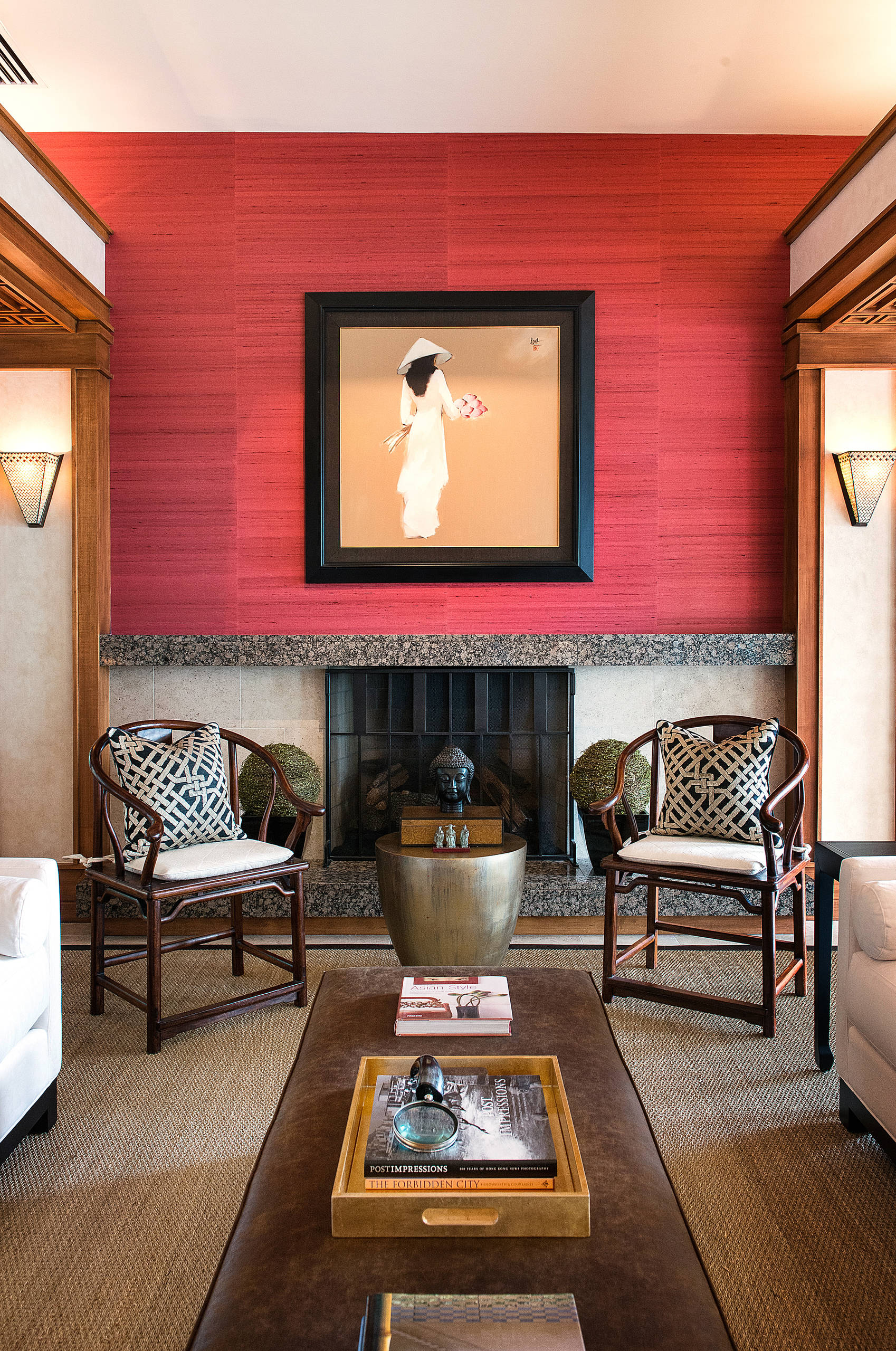
Your Hosting Situation
The living room is the central gathering place of the family, a place where memories are made and relationships are formed. It is an area where people gather to watch television, talk, have conversations or just relax with each other. Therefore, it is important that this area is well decorated, comfortable and welcoming. The decor of [...]


